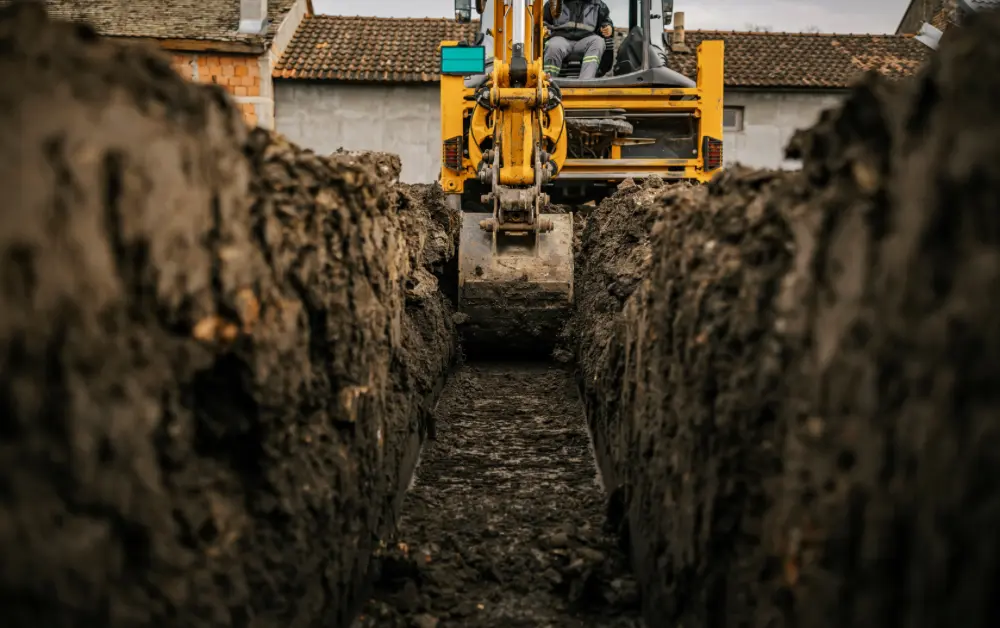A survey conducted by the Common Ground Alliance (CGA) found that 46% of Americans plan to dig without contacting 811.
Released in observance of National Safe Digging Month in April, the CGA’s national survey found that 68% of Americans plan to tackle a do-it-yourself project involving digging within the next year, but 27.2 million of them will not contact 811 before digging.
Not only is this illegal – homeowners and contractors alike are required by law to contact their local 811 before breaking ground on any size of excavation project – it's also dangerous. Digging without knowing what’s below risks damaging buried utilities, disrupting service to nearby residences and businesses and endangering anyone in the vicinity of the excavation.

"Our survey found that 46% of Americans don't plan to notify 811 before digging, with most believing their project is too shallow to merit an 811 request,” said CGA President and CEO Sarah K. Magruder Lyle. “This misconception puts homeowners and their neighbors at risk of injury and utility service interruptions. The reality is that utility lines can be buried just inches below the surface, which is why everyone must contact 811 before every digging project—whether it's installing a patio or major construction."
To keep homeowners, families and communities safe, a few days before breaking ground, make a free request to have the approximate location of underground lines marked with flags or paint by calling 811 or visiting www.811beforeyoudig.com. This National Safe Digging Month, and all year long, take the following steps when planning a digging project:
- Always contact 811 a few days before digging, regardless of the depth or familiarity with the property
- Plan ahead. Make a free 811 request on Monday or Tuesday for work planned for an upcoming weekend, providing ample time for the approximate location of lines to be marked
- Confirm that all lines have been marked
- Consider moving the location of the project if it is near utility line markings
- If a contractor has been hired, confirm that the contractor has contacted 811. Don't allow work to begin if the lines aren't marked
Everyone who contacts 811 a few days before digging is connected to a local 811 center that collects the information and communicates it to local utility companies. Professional locators will then visit the dig site to mark the approximate location of underground utility lines with spray paint, flags or both. Once a site has been accurately marked, it is safe to begin digging around the marked areas.
How GPRS Compliments Your 811 Locate
While you should always contact your local 811 One Call Center prior to digging, you should also hire a professional private utility locating company to locate and map all buried utilities in your intended dig area before you put a shovel or bucket in the ground.
GPRS is the nation’s largest professional private utility locating company. We’ve achieved and maintain a 99.8%+ accuracy rate when locating buried utilities, allowing us to compliment 811 services and the tools that support them.
Utilizing ground penetrating radar (GPR) scanners and electromagnetic (EM) locators, our SIM-certified Project Managers collect the accurate, complete data you need to stay on time, on budget, and safe. And this information is always at you and your team’s fingertips thanks to SiteMap®, our facility & project management application that provides existing conditions documentation to protect your assets and people.
What can we help you visualize?
FREQUENTLY ASKED QUESTIONS
What type of informational output is provided when GPRS conducts a utility locate?
GPRS Project Managers flag and paint their findings directly on the surface. This method of communication is the most accurate form of marking when excavation is expected to commence within a few days of service.
We also use a global positioning system (GPS) to collect data points of findings. We use this data to generate a plan, KMZ file, satellite overlay, or CAD file to permanently preserve results for future use. GPRS does not provide land surveying services. If you need land surveying services, please contact a professional land surveyor. Please contact us to discuss the pricing and marking options your project may require.
Can GPRS locate PVC piping and other non-conductive utilities?
GPR scanning is exceptionally effective at locating all types of subsurface materials. There are times when PVC pipes do not provide an adequate signal to ground penetrating radar equipment and can’t be properly located by traditional methods. However, GPRS Project Managers are expertly trained at multiple methods of utility locating.
Can GPR be used to verify known measurements?
We can use GPR to cross-check the measured depth and location of a located utility with existing as-built plans to verify the accuracy of plans.
